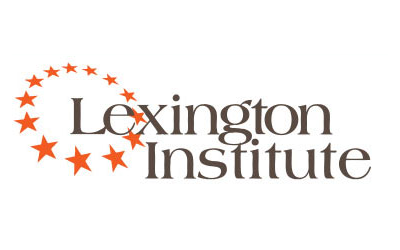By The Lexington Institute
As the inaugural U.S.-EU Trade and Technology Council (TTC) meets this week in Pittsburgh, America and our European Union (EU) allies have a unique opportunity to provide global leadership in developing policies that will support an open and democratic 21st Century internet.
The council’s first meeting comes at a critical time as China, Russia, and other “techno-autocracies” attempt to rewrite the rule book to expand their model of a closed, censored internet across the globe.
While the United States and Europe have long leveraged technology and digital innovation to protect our citizens and promote free expression and association online, many “techno-autocracies” stand in stark contrast. Nations such as Russia, China, and Iran have utilized technology to perpetrate damaging cyber and ransomware attacks, jeopardizing critical infrastructure, and paralyzing thousands of industries and corporations. According to a recent report, “cybercrime incidents now cost the world economy more than $1 trillion … up more than 50 percent from a 2018 report.”
Against this backdrop, it is more important than ever that the transatlantic alliance, which includes many of the world’s leading “techno-democracies,” collaborate to promote Western values as a way to defend and advance an open and accessible internet.
The TTC provides a new pathway to accomplish these goals.
According to a recent poll conducted by Ipsos on behalf of the American Edge Project (AEP), voters on both sides of the Atlantic believe the United States and our European allies champion a common set of values that both China and Russia fundamentally oppose, and without stronger multilateral ties, China’s technological and political ascendancy threatens our way of life.
The poll also found that voters believe greater cooperation among transatlantic allies will allow us to defend our shared values, confront common threats, and preserve the economic and security benefits of today’s internet technologies. In fact, 86 percent of Americans and 81 percent of Europeans agree that the transatlantic allies must work together to curb the threat from China.
As the Atlantic Council recently stated, the TTC represents “a symbol of the restored commitment of the United States and the EU to their partnership.” Now, with increased efforts by China to control the global digital landscape, we must ensure this “symbol” results in meaningful, lasting action that provides greater transatlantic cooperation to guard against our common threats for decades to come.
With voters in the United States and Europe calling for a unified coalition of democratic countries to set the standards for the internet, the TTC must leverage this opportunity to protect our shared values of openness, accessibility, and freedom of expression. If we fail to advance our shared values, we risk forfeiting global technological leadership to foreign adversaries, putting the safety, privacy, and liberty of free people and governments at risk.
